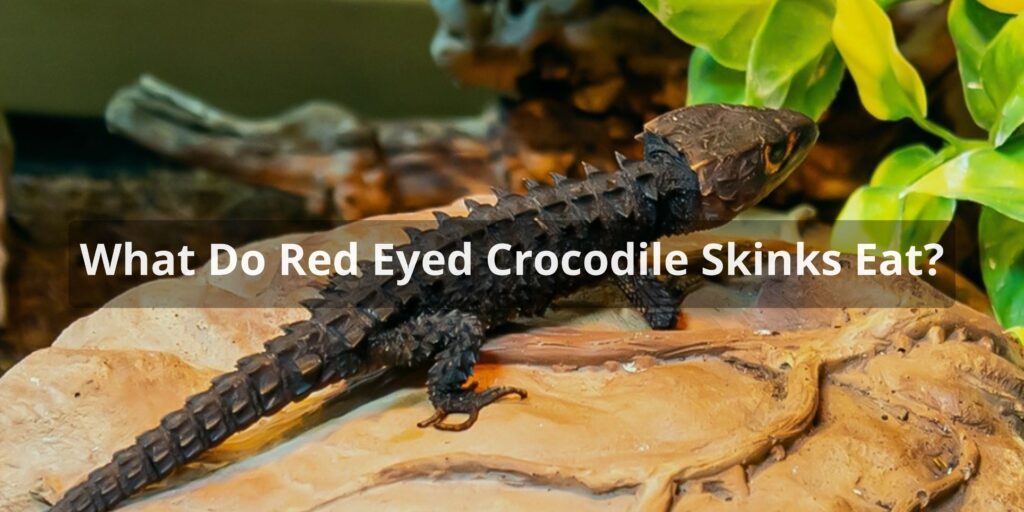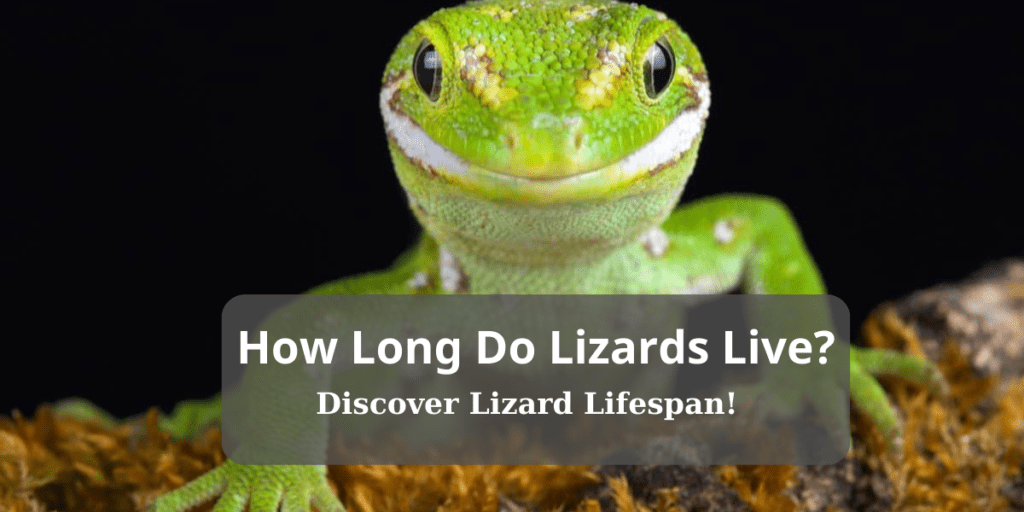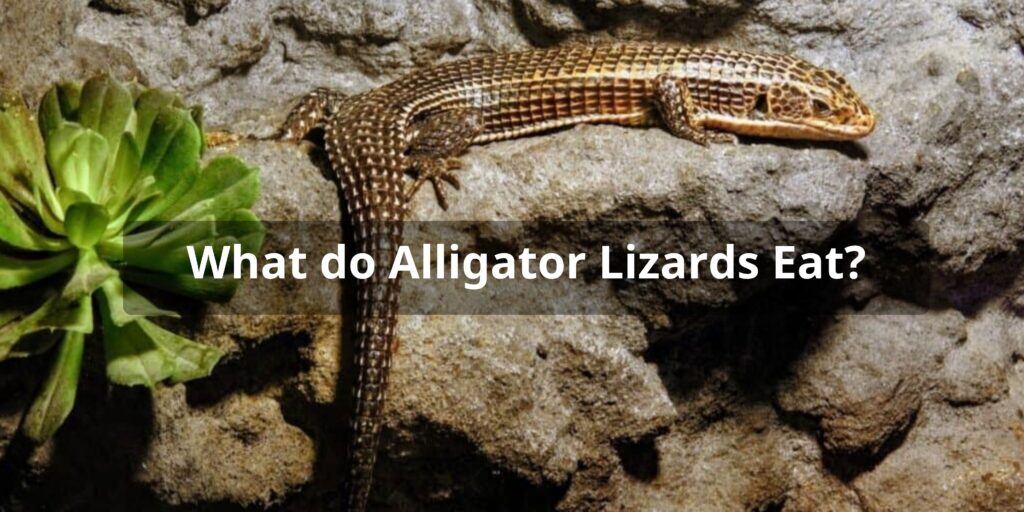Red-eyed crocodile skinks, also known as Tribolonotus gracilis, are fascinating creatures that belong to the lizard family. These small lizards are popular pets among reptile enthusiasts due to their unique appearance and behavior. However, one of the most important aspects of owning a red-eyed crocodile skink is understanding their dietary requirements. In this article, we’ll delve into the details of what these lizards eat, including their preferred live food options, safe vegetables for regular intake, recommended fruits for their diet, essential vitamins and minerals they need, foods to avoid, feeding guidelines for owners, and hydration needs.
Red Eyed Crocodile Skinks Diet Basics
When it comes to the diet of red-eyed crocodile skinks, there are some basic rules to follow. Younger skinks should be fed more frequently than adults since they require more nutrients for growth. It’s also crucial to maintain the right insect-to-plant food ratio. Here are some bullet points to give you an idea of how often and what to feed your red-eyed crocodile skink based on age:
- Hatchlings to Juveniles (up to six months): Feed daily with insects such as crickets, mealworms, and small roaches.
- Subadults (six months to a year): Feed every other day, alternating between insects and plant-based foods.
- Adults (over a year old): Feed twice or thrice a week with a mix of insects and plant foods.
Essential Foods for Red Eyed Crocodile Skinks Diet
Now that you know how often to feed your red-eyed crocodile skinks let’s take a closer look at the different types of foods they need.
Preferred Live Food Options
Red-eyed crocodile skinks are carnivorous, and therefore, their diet should consist mainly of insects. Here are some of the best live food options for your red-eyed crocodile skink:
- Crickets
- Mealworms
- Dubia Roaches
- Superworms
- Waxworms
Safe Vegetables for Regular Intake
Although red-eyed crocodile skinks are primarily insectivores, they also need a small amount of plant matter in their diet. Here are some safe vegetables that you can feed your red-eyed crocodile skinks:
- Kale
- Chard
- Squash
- Carrots
- Bell Peppers
Recommended Fruits for Red Eyed Crocodile Skinks Diet
While fruit is not a crucial part of a red-eyed crocodile skink’s diet, it can provide important nutrients and variety. Here are some recommended fruits to feed your red-eyed crocodile skinks:
- Mango
- Papaya
- Kiwi
- Berries (blueberries, raspberries, etc.)
- Melons
Essential Vitamins & Minerals
Red-eyed crocodile skinks require specific vitamins and minerals to maintain good health. Here are some essential nutrients that should be included in their diet:
- Calcium: Crucial for strong bones, teeth, and muscle function. You can dust their insects with calcium powder or offer calcium-rich foods like kale and collard greens.
- Vitamin D3: Important for calcium absorption. You can provide D3 through UVB lighting or supplements.
- Vitamin A: Necessary for eye health and immune function. Feed your skinks vitamin A-rich foods like carrots and sweet potatoes.
Foods to Avoid for Red Eyed Crocodile Skinks Diet
While there are many foods that red-eyed crocodile skinks can eat, there are also several foods to avoid due to potential toxicity or digestive issues. Here are a few examples:
- Avocado
- Citrus fruits
- Rhubarb
- Spinach
- Tomatoes
Feeding Guidelines for Red Eyed Crocodile Skinks Owners

To ensure your red-eyed crocodile skink is getting the right nutrients and staying healthy, follow these feeding guidelines:
- Offer a varied diet that includes live insects, vegetables, and occasional fruits.
- Avoid overfeeding, as this can lead to obesity and other health issues.
- Use calcium powder to prevent metabolic bone disease.
- Remove uneaten food after 15-20 minutes to avoid contamination.
Understanding Red Eyed Crocodile Skinks Hydration Needs
Red-eyed crocodile skinks require fresh water at all times. You can provide a shallow water dish in their enclosure or mist their habitat regularly to maintain humidity levels.
In conclusion, understanding the dietary needs of your red-eyed crocodile skink is crucial for their overall health and well-being. Feeding them the right combination of live foods, vegetables, fruits, vitamins, and minerals can help them thrive. Remember to avoid certain foods and follow feeding guidelines to prevent any health issues. With proper care, your red-eyed crocodile skink can live a long and happy life.
FAQs About Red Eyed Crocodile Skinks Diet
How often should I feed my pet crocodile skink?
Feed Red-Eyed Crocodile Skinks every 2-3 days. Young skinks may require slightly more frequent meals. Adjust based on their age, size, and activity level. A consistent feeding routine supports their health and well-being.
Do crocodile skinks eat fruits and vegetables?
While their primary diet consists of insects, you can offer small amounts of fruits and vegetables occasionally. Focus on providing insects and high-quality commercial diets to meet their nutritional requirements.
Is it okay to give crocodile skinks small rodents?
Crocodile skinks are primarily insectivores. While small rodents can be offered occasionally, they should not be a significant part of their diet. Ensure a balance of insects and occasional fruits for proper nutrition.
What types of insects are suitable for them?
Suitable insects include crickets, roaches, mealworms, and waxworms. A variety of insects offers essential protein. Choose insects of appropriate size for the skinks to consume easily.
Can Red-Eyed Crocodile Skinks eat worms?
Yes, small worms like mealworms can be included in their diet. However, worms should not make up the entire diet. Mix them with a variety of insects and occasional fruits for a balanced nutritional intake.
Can I offer my crocodile skink baby food?
Occasionally, you can offer unsweetened and organic baby food as a treat. Opt for varieties with fruit or vegetable bases. However, this should complement their primary diet of insects and occasional fruits.
How do I ensure a balanced diet for them?
To ensure a balanced diet, offer a variety of insects, occasional fruits, and high-quality commercial diets formulated for insectivores. Regularly monitor their weight, behavior, and overall health. Consulting with reptile experts or veterinarians helps create a diet plan tailored to their needs.



